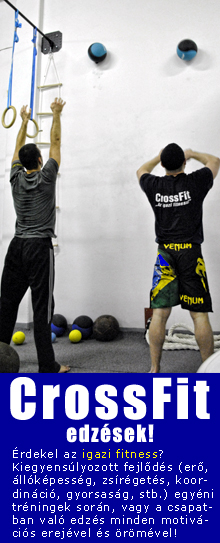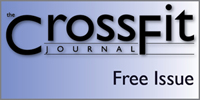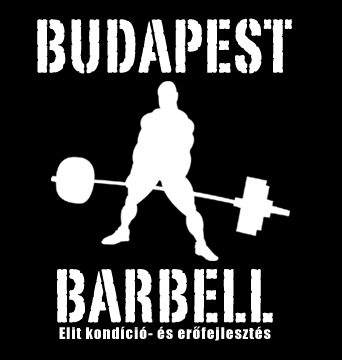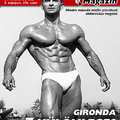J Cardiovasc Pharmacol. 2008 Nov 19. [Epub ahead of print]
Fish Oil Reduces Heart Rate and Oxygen Consumption During Exercise.
Peoples GE, McLennan PL, Howe PR, Groeller H.
From the *Smart Foods Centre; Human Performance Laboratories; School of Health Sciences; and School of Medicine, University of Wollongong, Wollongong, NSW, Australia.
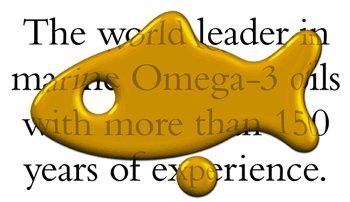 Dietary omega-3 polyunsaturated fatty acids (PUFAs) are readily incorporated into heart and skeletal muscle membranes where, in the heart, animal studies show they reduce O2 consumption. To test the hypothesis that omega-3 PUFAs alter O2 efficiency in humans, the effects of fish oil (FO) supplementation on O2 consumption during exercise were evaluated. Sixteen well-trained men (cyclists), randomly assigned to receive 8 x 1 g capsules per day of olive oil (control) or FO for 8 weeks in a double-blind, parallel design, completed the study (control: n = 7, age 27.1 +/- 2.7 years; FO: n = 9, age 23.2 +/- 1.2 years). Subjects used an electronically braked cycle ergometer to complete peak O2 consumption tests (VO2peak) and sustained submaximal exercise tests at 55% of peak workload (from the VO2peak test) before and after supplementation.
Dietary omega-3 polyunsaturated fatty acids (PUFAs) are readily incorporated into heart and skeletal muscle membranes where, in the heart, animal studies show they reduce O2 consumption. To test the hypothesis that omega-3 PUFAs alter O2 efficiency in humans, the effects of fish oil (FO) supplementation on O2 consumption during exercise were evaluated. Sixteen well-trained men (cyclists), randomly assigned to receive 8 x 1 g capsules per day of olive oil (control) or FO for 8 weeks in a double-blind, parallel design, completed the study (control: n = 7, age 27.1 +/- 2.7 years; FO: n = 9, age 23.2 +/- 1.2 years). Subjects used an electronically braked cycle ergometer to complete peak O2 consumption tests (VO2peak) and sustained submaximal exercise tests at 55% of peak workload (from the VO2peak test) before and after supplementation.
Fish Oil Reduces Heart Rate and Oxygen Consumption During Exercise.
Peoples GE, McLennan PL, Howe PR, Groeller H.
From the *Smart Foods Centre; Human Performance Laboratories; School of Health Sciences; and School of Medicine, University of Wollongong, Wollongong, NSW, Australia.
 Dietary omega-3 polyunsaturated fatty acids (PUFAs) are readily incorporated into heart and skeletal muscle membranes where, in the heart, animal studies show they reduce O2 consumption. To test the hypothesis that omega-3 PUFAs alter O2 efficiency in humans, the effects of fish oil (FO) supplementation on O2 consumption during exercise were evaluated. Sixteen well-trained men (cyclists), randomly assigned to receive 8 x 1 g capsules per day of olive oil (control) or FO for 8 weeks in a double-blind, parallel design, completed the study (control: n = 7, age 27.1 +/- 2.7 years; FO: n = 9, age 23.2 +/- 1.2 years). Subjects used an electronically braked cycle ergometer to complete peak O2 consumption tests (VO2peak) and sustained submaximal exercise tests at 55% of peak workload (from the VO2peak test) before and after supplementation.
Dietary omega-3 polyunsaturated fatty acids (PUFAs) are readily incorporated into heart and skeletal muscle membranes where, in the heart, animal studies show they reduce O2 consumption. To test the hypothesis that omega-3 PUFAs alter O2 efficiency in humans, the effects of fish oil (FO) supplementation on O2 consumption during exercise were evaluated. Sixteen well-trained men (cyclists), randomly assigned to receive 8 x 1 g capsules per day of olive oil (control) or FO for 8 weeks in a double-blind, parallel design, completed the study (control: n = 7, age 27.1 +/- 2.7 years; FO: n = 9, age 23.2 +/- 1.2 years). Subjects used an electronically braked cycle ergometer to complete peak O2 consumption tests (VO2peak) and sustained submaximal exercise tests at 55% of peak workload (from the VO2peak test) before and after supplementation. This study indicates that FOs may act within the healthy heart and skeletal muscle to reduce both whole-body and myocardial O2 demand during exercise, without a decrement in performance.
Ez a tanulmány azt jelzi, hogy a halolaj képes lehet úgy hatni az egészséges szívben és vázizomzatban, hogy csökkenti a teljes test és szívizom oxigén igényét edzés alatt anélkül, hogy csökkentené a teljesítményt. (8x1 grammos kapszulákat használtak)

